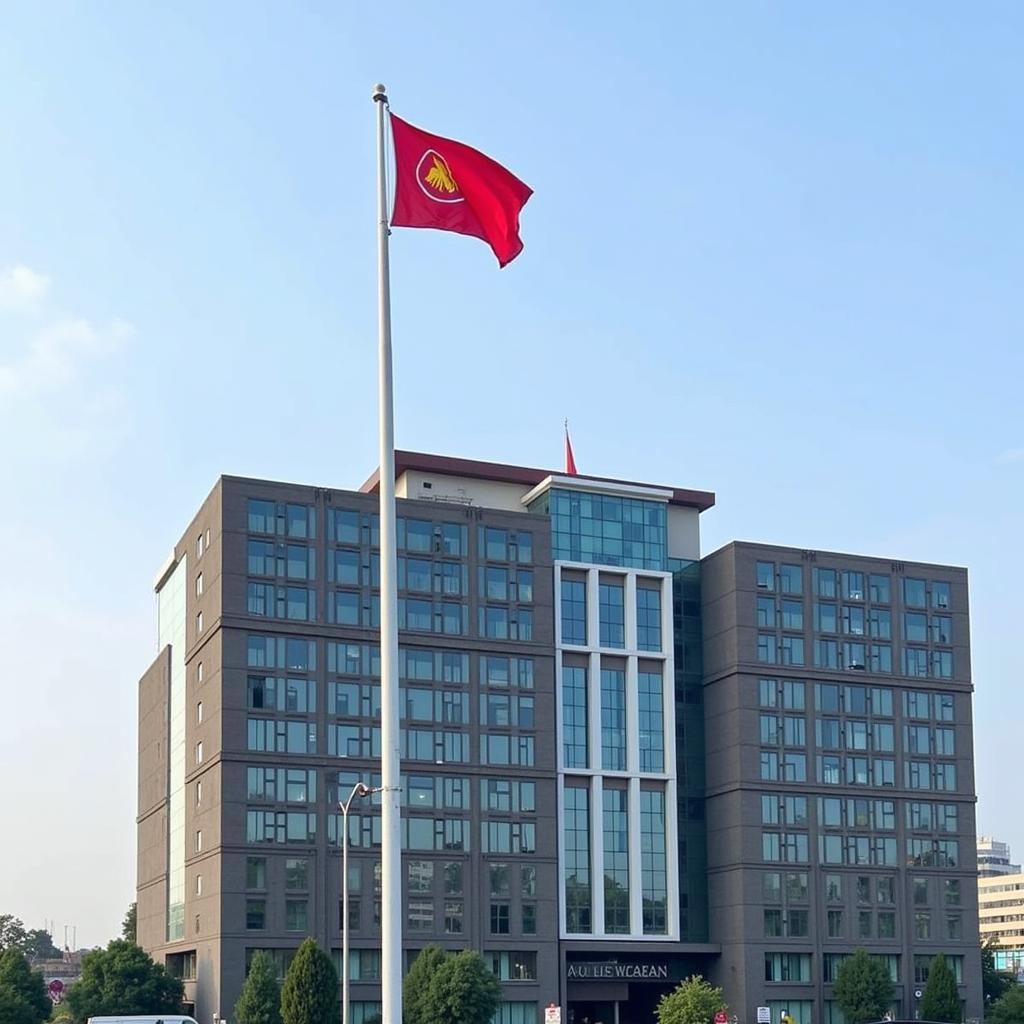Understanding the structure of ASEAN can be key to unlocking business opportunities within the region. While ASEAN itself doesn’t have a singular “ASEAN headquarters” in the traditional sense, it’s important to understand where key functions are located and how they operate. This guide will navigate you through the various ASEAN bodies, their roles, and their locations, helping you better understand the dynamics of this exciting economic bloc.
Understanding the ASEAN Structure: Decentralized Yet Interconnected
ASEAN adopts a unique structure, opting for a decentralized approach over a centralized headquarters. This means various ASEAN bodies are spread across member states, each with its specific function.
The ASEAN Secretariat: The Coordinating Hub
Located in Jakarta, Indonesia, the ASEAN Secretariat acts as the administrative and coordinating body for ASEAN. It plays a vital role in:
- Facilitating cooperation between ASEAN member states
- Implementing ASEAN projects and initiatives
- Providing support to ASEAN meetings and summits
- Disseminating information about ASEAN to stakeholders
While not a headquarters in the traditional sense, the ASEAN Secretariat acts as a central point of contact and coordination for the organization.
 ASEAN Secretariat building in Jakarta
ASEAN Secretariat building in Jakarta
Specialized ASEAN Bodies: Addressing Specific Needs
Beyond the Secretariat, ASEAN has established numerous specialized bodies located across different member states. These bodies focus on specific areas of cooperation, such as:
- ASEAN Centre for Biodiversity (ACB) in the Philippines: Promotes biodiversity conservation and sustainable use of resources.
- ASEAN Coordinating Centre for Humanitarian Assistance on disaster management (AHA Centre) in Indonesia: Coordinates disaster response and preparedness efforts.
- ASEAN Institute for Peace and Reconciliation (AIPR) in Indonesia: Promotes peace, dialogue, and reconciliation in the region.
This decentralized approach allows ASEAN to leverage the strengths and expertise of different member states, ensuring focused attention on diverse regional issues.
Sectoral Ministerial Bodies: Driving Cooperation
ASEAN’s work is driven by various sectoral bodies, each headed by a minister from each member state. These bodies, responsible for specific sectors like economics, finance, and socio-cultural development, often rotate their chairmanship annually. This rotating leadership fosters a sense of shared responsibility and promotes equitable participation among member states.
Why a Decentralized Approach?
ASEAN’s decision to forgo a central headquarters stems from several key factors:
- Promoting Equity Among Member States: Distributing key functions across member states ensures no single country dominates the organization, fostering a sense of equality and ownership.
- Leveraging Regional Strengths: Different countries have different areas of expertise. By locating specific bodies in countries with relevant strengths, ASEAN optimizes resource utilization and knowledge sharing.
- Enhancing Engagement: Having a presence in various countries allows ASEAN to engage more effectively with local communities, businesses, and organizations, promoting a more inclusive approach to regional integration.
Navigating ASEAN for Your Business
Understanding the decentralized structure is crucial for businesses looking to engage with ASEAN:
- Identify Your Target Sector: Determine which specific ASEAN body or sectoral ministerial body aligns with your business interests.
- Research Relevant Member States: Once you’ve identified the relevant bodies, research the member states where they are located. This will provide insights into local regulations, business environments, and potential opportunities.
- Network Strategically: Participate in ASEAN-related events and engage with relevant stakeholders, including government officials, business associations, and industry experts. Building strong networks is essential for success in the region.
FAQs about ASEAN Structure
1. How can I contact a specific ASEAN body?
Information for contacting each ASEAN body is readily available on the official ASEAN website.
2. Does the rotating chairmanship affect the work of ASEAN bodies?
While the chairmanship rotates annually, the core functions and mandates of ASEAN bodies remain consistent, ensuring continuity in their work.
3. How does ASEAN ensure effective coordination between its various bodies?
The ASEAN Secretariat plays a crucial role in facilitating communication and coordination between different ASEAN bodies through regular consultations, meetings, and information sharing platforms.
Need More Information?
Navigating ASEAN’s unique structure can be complex. If you need further assistance in understanding ASEAN or require specific information related to your business interests, don’t hesitate to reach out to us.
Contact Us:
Phone Number: +84369020373
Email: aseanmediadirectory@gmail.com
Address: Ngoc Lien Village, Hiep Hoa, Bac Giang, Vietnam
Our dedicated team is available 24/7 to answer your questions and provide the support you need to navigate the dynamic world of ASEAN.